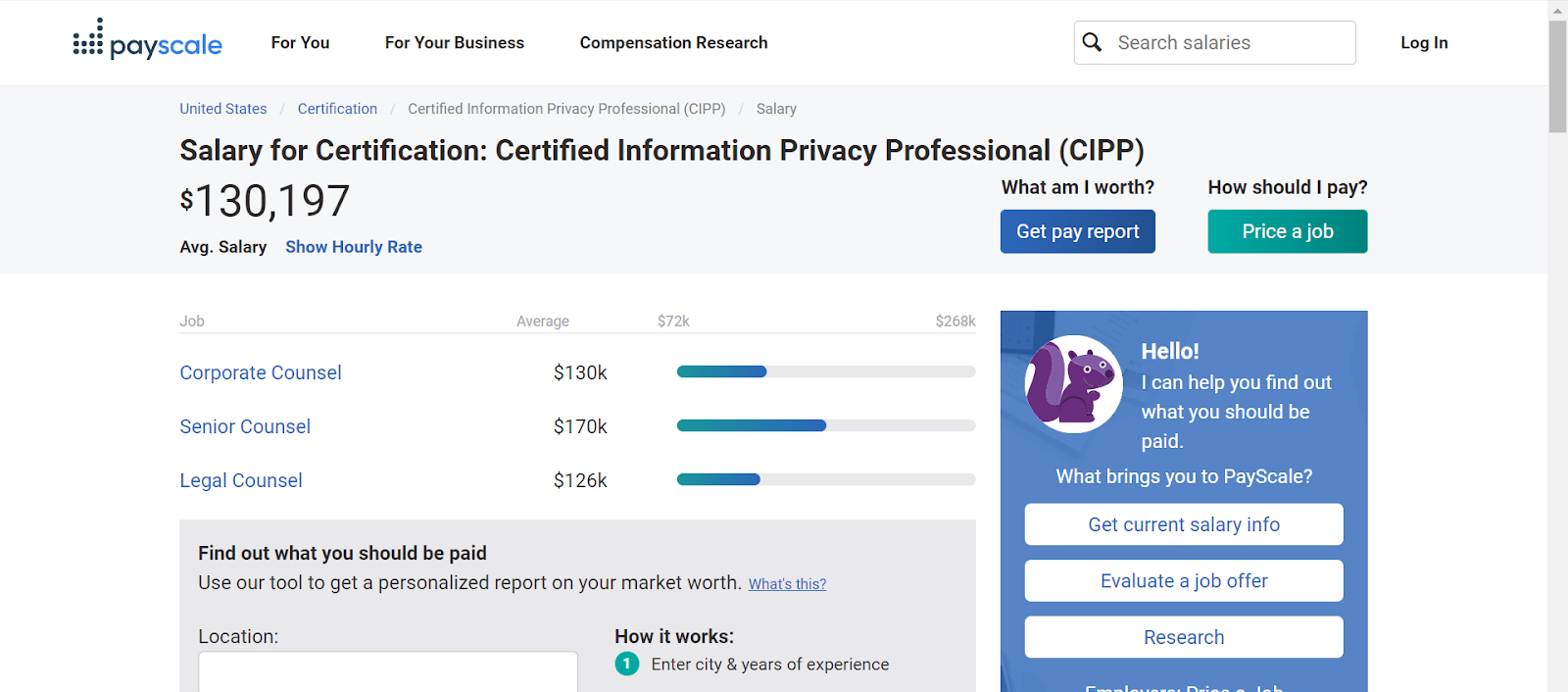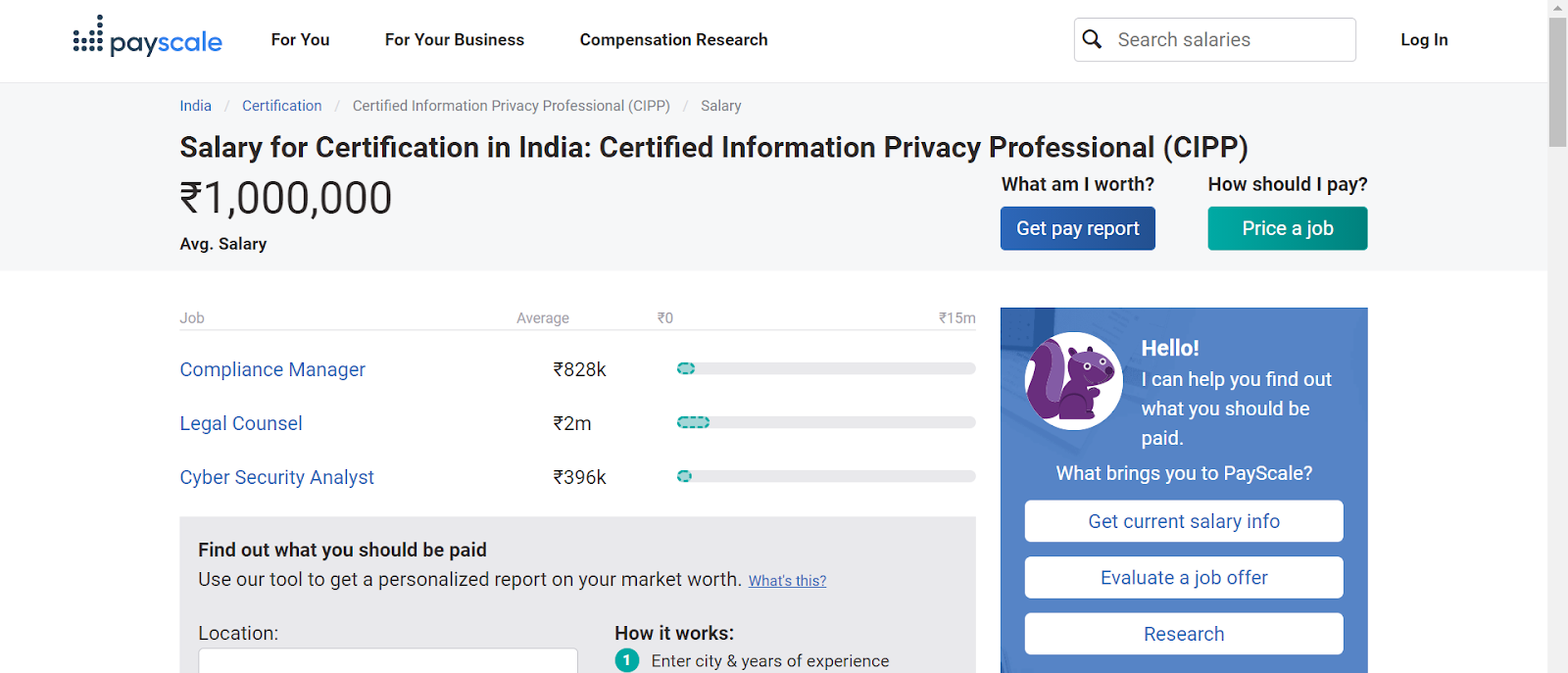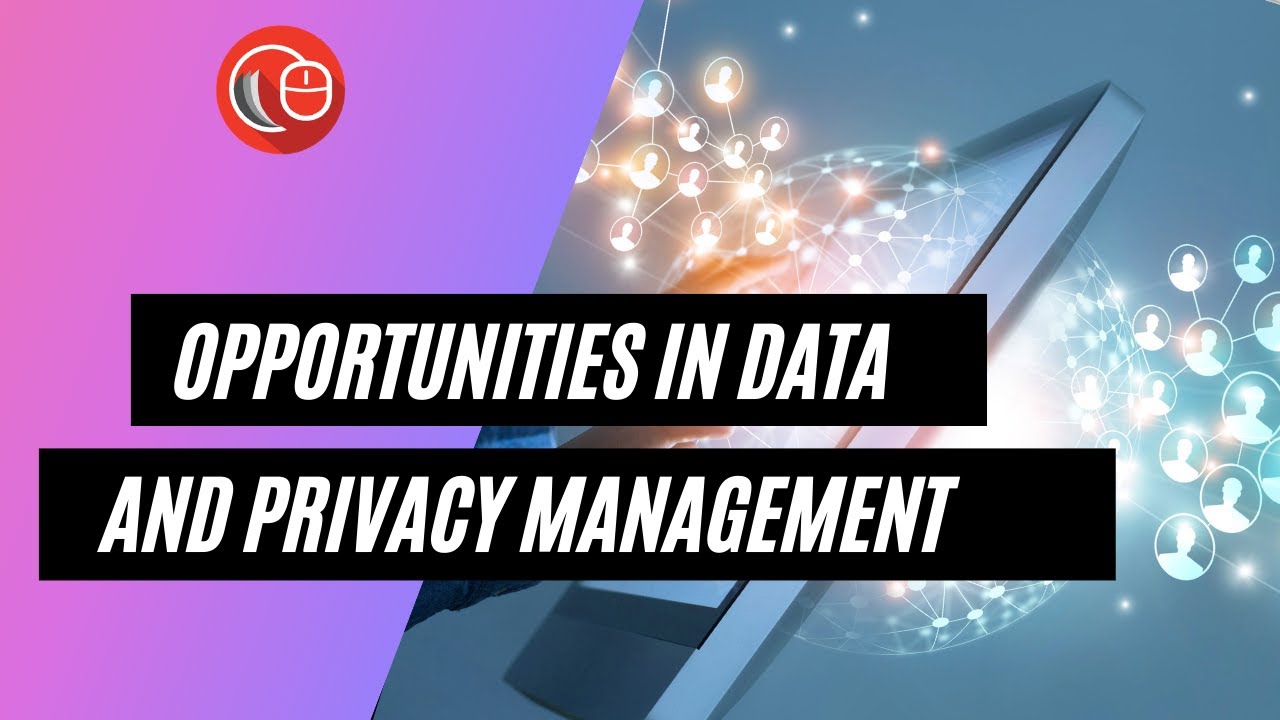Certified Information Privacy Professional Exam
In today's digital age, data is more valuable than ever before. With the European Union's General Data Protection Regulation (EU GDPR) setting a global precedent, and stringent regulations like those in the US and Canada, the need to protect sensitive information has taken center stage.
As professionals dealing with financial matters, you're entrusted with not only numbers but also the confidential data behind them. A breach of privacy can lead to financial losses, legal complications, and a tarnished reputation.
Throughout this course, we delve into the core principles of privacy protection, arming you with the knowledge and strategies needed to excel in the Certified Information Privacy Professional (CIPP) Exam.
Our goal is to not only help you pass the exam but also to equip you with real-world insights that can be immediately applied to your professional endeavors.
To truly understand the significance of these regulations, we'll explore various case studies that highlight the consequences of privacy breaches and the impact they have on individuals and organizations. These case studies offer a tangible grasp of the potential pitfalls and underline the urgency of privacy compliance.
In one instance, we'll delve into the aftermath of a data breach that exposed sensitive customer information. This led to hefty legal fines, loss of consumer trust, and a damaged reputation that took years to rebuild. By examining such scenarios, you'll grasp the tangible repercussions of inadequate privacy measures.
Furthermore, we'll examine the evolution of privacy laws across different regions. The EU General Data Protection Regulation (GDPR) has set a global standard for data protection. We'll unravel its intricate articles, ensuring you not only memorize them but also comprehend their practical implications.
Moving across the Atlantic, we'll learn the multifaceted landscape of privacy regulations in the US. With a patchwork of laws such as HIPAA, CCPA, and more, the US presents a unique challenge. Our course will break down these laws and elucidate how they interplay.
Canada's privacy landscape, too, holds its own complexities with the Personal Information Protection and Electronic Documents Act (PIPEDA). Understanding its nuances is vital, especially for professionals working with Canadian entities or data.
In an era where personal information has become one of the most valuable commodities, protecting individuals' privacy rights is not only ethically crucial but also a legal obligation.
The European Union's General Data Protection Regulation (EU GDPR) has set a precedent for data protection standards worldwide. Simultaneously, countries like the US and Canada have introduced their own privacy regulations that demand experts who can interpret and implement these laws effectively.
Our Executive Certificate Course is meticulously designed to demystify the intricacies of data privacy regulations.
We understand that complex legal jargon can be intimidating, so we've tailored our content to be accessible and engaging for professionals in the US Accounting and Bookkeeping field.
You'll gain a deep understanding of the EU GDPR, as well as the privacy regulations specific to the US and Canada.
What to Expect
No prior legal expertise? No problem. Our course breaks down the concepts into bite-sized, understandable modules. From understanding the key principles of data protection to comprehending cross-border data transfers, we'll guide you step by step.
Our industry-experienced instructors bring real-world scenarios into the virtual classroom, ensuring you grasp not only the theory but also its practical application.
Learning doesn't happen in isolation. Engage with fellow US Accounting and Bookkeeping professionals who share your goals. Collaborate on projects, participate in discussions, and exchange insights that go beyond the textbooks.
Our instructors are committed to your success, offering personalized support to address your queries and concerns.
The pinnacle of our course is preparing you to conquer the CIPP exam with confidence. We provide comprehensive resources, practice tests, and mock scenarios that mirror the exam environment. Our goal is not just to help you pass the exam, but to empower you with the expertise to excel in your career.
Our mission is to empower you with a comprehensive understanding of these regulations, using real cases and practical insights. We want you not only to succeed in the CIPP exam but also to enter the professional world as a confident and adept privacy professional.
Get ready to embark on a journey that merges theoretical knowledge with practical application, equipping you with the skills to champion privacy and data protection.
Your success in this course and, eventually, in the CIPP exam, is the first step toward shaping a future where privacy is a paramount concern
What is the CIPP exam?
The CIPP exam is the exam for a certification i.e. Certified Information Privacy Professional offered by the International Association of Privacy Professionals (IAPP).
The International Association of Privacy Professionals (IAPP) is a not-for-profit organization and is the largest and most comprehensive global information privacy community.
The IAPP offers four concentrations for this certification, based on different regions:
- CIPP/A - covering Asia
- CIPP/E - covering Europe
- CIPP/US - covering the United States, and
- CIPP/C - covering Canada
All four certifications have different exams of their own, different syllabus and different study resources.
What are the career benefits of cracking the exam? What kind of opportunities can you secure?
The CIPP certification is one of the most recognized certifications by the industry for hiring privacy professionals. Its popularity can be witnessed in the growth of the certifications and membership numbers of the IAPP.
The IAPP hit the numbers of 25000 certifications and 50000 members, both in 2019. While they took 12 years to hit their first 10000 certifications, they increased by 15000 in the next seven years.
While the current numbers are unknown, it is very likely that they will hit their next landmark much faster.
This is not surprising, considering the salary levels of professionals who hold the Certified Information Privacy Professional (CIPP) certification. When the demand for some skills is higher than the supply, this is what happens.


The variety of positions that you can secure includes privacy managers, compliance managers, privacy counsel, privacy analyst, data privacy consultant, privacy specialist, data privacy advisor, etc.
Multinational companies and tech startups that are expanding out of the country can be highly interested in hiring lawyers who can understand Canadian data privacy laws such as the PIPEDA and the CIPP certification can go a long way in convincing them that you have knowledge in this area.
The IAPP itself has many jobs listed on its portal in the Career Central area.
What are the challenges faced by candidates attempting the exam?
Here are some of the issues that the candidates face while attempting this exam:
- The first issue that candidates face is that the syllabus isn’t fixed. The body of knowledge available on the IAPP website is basically an outline. It doesn’t mean that those are the only things that will be asked. It is essential for students to buy the textbook which costs USD75 and the textbooks are often not updated to the latest year.
- The questions asked are situational. The available resources train people on law, but there’s no guidance on how to apply it to specific situations.
- There are not many live classes and sessions available and where they are available, they are concentrated within 2-4 days and are prohibitively expensive.
- One of the biggest challenges that candidates face is the unavailability of mentoring and handholding sessions for any doubts that they may have or any gaps that they face in understanding the legal concepts. They do not know whom to reach out to, to get the gaps sorted or doubts cleared. If they do find someone, they aren’t sure the person will guide them correctly.
- The laws in this domain are updated fairly frequently. It is very difficult to keep track of the changes in developments and often textbooks do not take care of the changes. There is also a lack of clarity on what can be the correct resources to use, to keep a tab of the changes and a complete lack of a system on how to do this.
How much preparation does the certification require?
Although IAPP states that the required preparation hours are 30, most candidates find it difficult to grasp the entire syllabus in that much time. If you are totally new to this area, the required time can be almost double for you.
If you space out your learning over 2 months and put in 8 hours in a week (1.5 hours per day for 5 days + time for mock tests), this will add up to 64 hours, which can be sufficient.
Testimonial

Dear LawSikho team,
I am delighted to inform you that I have passed the CIPP/E exam on 16th February 2022. I am thankful to the faculty and the entire lawsikho team behind the CiPP/E preparation group, which I was part of. I am mostly greatful for the material which was provided for the preparation of the exam.
Thanks,
Vasudha Arora
 Vasudha Arora Student
Vasudha Arora Student
How can LawSikho help?
LawSikho is the only organisation providing live online training for all three certifications. We are also the only organisation providing 60 mock tests . Further, we will provide you the material in hard copy - all other providers will provide you with a digital textbook and notes.
The live sessions will explain the concepts in a very simplified manner and clear any gaps in understanding that you have.
On top of it, there is constant mentoring and doubt clearing available as required.
Most course providers are charging over INR 1 lakh for one certification, while with LawSikho, the training for one certification can be completed at INR 36,600.
You will have access to the class recordings and the material upto the point when you clear the exams and not just up to the first attempt.
We also provide placement support for people who have cleared the exams, which no other provider does.
No other training provider provides handholding to the extent LawSikho does. At LawSikho, we have your back.
Money back guarantee
If you take this course, follow it diligently for a month, attend all classes and do all the exercises but still do not find value in it, or are not able to understand or follow it or not find it good for any reason, we will refund the entire course fee to you. It is a 100% money-back guarantee with only one condition, you must pursue it properly for a month. If you don’t find it valuable after that, get your entire money back.
View Refund Policy
Course Plan
Above prices are inclusive of all applicable taxes and charges.
 Standard
Standard
RS. 51000
incl. of all charges
View details
1 online live class/ week
60 mock test
2 practical or 1 drafting exercises per week
1 writing assignment
Get digital access to entire study material
Hardcopy study materials- available on additional charges.
Access on LMS, Android & iOS app
Instructor feedback on assignments
Unlimited doubt clearing sessions.
Instructor led course with online live classes
Online exams (give exams as per your convenience on given time slots)
CV enhancement
Coaching for professional networking
Training for writing and publishing articles
Internship & Job Support
Interview preparation guidance
Access to updated content online for 3 years
Top students are recommended to law firms and companies
Internship and job support available





























 Key Highlights
Key Highlights
















 ADDICTIVE LEARNING TECHNOLOGY LIMITED
ADDICTIVE LEARNING TECHNOLOGY LIMITED











